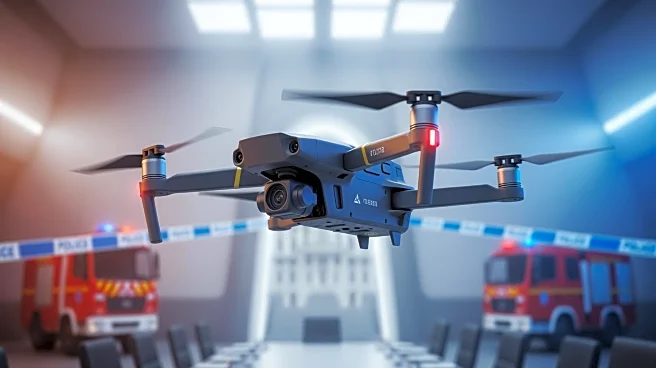What's Happening?
The North Korean state-sponsored hacking group, Lazarus, is targeting European companies involved in the unmanned aerial vehicle (UAV) sector as part of a campaign known as Operation Dream Job. According
to ESET, the group has been active since at least 2009 and is known for using fake job offers to infiltrate organizations. These offers are designed to infect victims' systems with malware, allowing Lazarus to steal intellectual property and sensitive information. The recent attacks, which began in March 2025, have focused on companies in the defense sector, including those involved in metal engineering, aircraft components manufacturing, and defense technology. The campaign appears to be aimed at gathering information on weapon systems deployed in Ukraine, as well as perfecting drone designs and processes.
Why It's Important?
The targeting of European drone companies by North Korean hackers has significant implications for international security and the defense industry. By stealing proprietary information and manufacturing know-how, North Korea could enhance its domestic UAV capabilities, which are reportedly being reinforced with assistance from Russia. This development could alter the balance of military power, particularly in regions where drones play a critical role in modern warfare. Additionally, the theft of intellectual property poses a threat to the competitive advantage of affected companies, potentially impacting their market position and financial performance. The attacks highlight the ongoing cybersecurity challenges faced by the defense sector and the need for robust security measures to protect sensitive information.
What's Next?
As the campaign continues, affected companies may need to strengthen their cybersecurity defenses and collaborate with international partners to mitigate the threat posed by Lazarus. Governments and industry leaders could increase efforts to track and counteract North Korean cyber activities, potentially leading to diplomatic or economic responses. The focus on UAV technology suggests that future attacks may target other sectors involved in advanced military technologies. Companies in these fields should remain vigilant and proactive in securing their systems against potential intrusions.
Beyond the Headlines
The ethical implications of state-sponsored cyber espionage are profound, raising questions about the legality and morality of such actions. The use of fake job offers to deceive individuals and infiltrate organizations underscores the need for increased awareness and education on social engineering tactics. Furthermore, the collaboration between North Korea and Russia in drone development could signal a shift in geopolitical alliances, with potential long-term consequences for global security dynamics.









